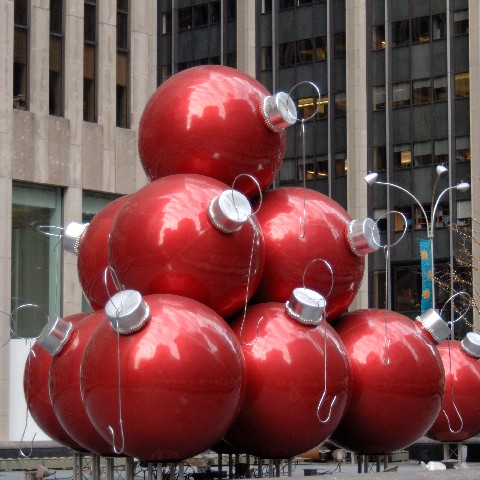’Twas the Month Before Christmas

In the weeks leading up to Christmas we always hear and read a large number of
commentators – mostly Christian – exhorting us all to remember the
“Real Meaning of Christmas”.
And most of them get it wrong.
They expect the commemoration of the birth of Christ to be the central part of the
Christmas celebrations, but that’s just one aspect of Christmas – and
certainly not an essential one.
Christmas Through the Ages
Christmas in the northern hemisphere occurs around the time of the winter solstice, when
the nights are longest and the days are dark and cold and dreary.
Just the time for a celebration to lift everyone’s spirits, and people have been
doing exactly that for millenia.
The northern European festival of Yuletide, or the Roman Saturnalia, or any of the other
winter solstice festivals – all of these serve the same purpose, to give people
something to look forward to during the gloom of winter.
Everyone would get together with friends and family, eat and drink too much, and generally
have a good time.
Different societies had different names for the festivities, but they were all essentially
the same thing – a mid-winter party.
Christians don’t claim that Jesus was born on the 25th of December 1AD.
It is widely acknowledged that the date was chosen some centuries later, and for a
religion competing for acceptance in a mostly non-Christian world it made a lot of sense
to make the major celebration coincide with an existing festival.
As Christianity became the established religion throughout Europe,
“Christmas” became accepted as the name of the mid-winter festival, but the
festival itself hardly changed at all.
Even to this day we still have Christmas trees, and holly wreaths, and sometimes Yule
logs.
We make special foods which are consumed communally, and many of us drink rather more
alcohol than we should.
None of this has anything to do with the baby Jesus; it’s all just a mid-winter
celebration.
What the Christians call Christmas is the same festival people were celebrating under
other names for centuries before them.
“It’s In the Name…”
“But Christmas must be about Christ. His name is right there in the name of the
day.”
Just the other day I heard a clergyman on the radio saying “Christ is the reason for
the season”.
No He isn’t.
The name of the Norse god Woden (also known as Odin or Óðinn) is
in the word “Wednesday”, but we don’t consider every Wednesday to be a
celebration of the ruler of Valhalla.
Wednesday is the generally-agreed name of the middle day of the week, and Christmas is
likewise the widely-accepted name for the late-December celebrations.
The use of the word Christmas does not imply a belief in Christ, any more than the use of
the word Wednesday suggests some acceptance of the Norse pantheon.
It’s just a name.
By the way, don’t imagine that I object to people holding their religious
observances at Christmas time, whether it be the birth of Christ, or Hanukkah, or anything
else.
Christmas is a thoroughly robust institution; it’s quite capable of accommodating
the various layers of meaning heaped on it.
If you want to celebrate the anniversary of the birth of Jesus, go right ahead.
Just don’t be upset if I don’t join you.
“Happy Holidays!”
It follows from all this that I don’t agree with the practice of wishing people
“Happy Holidays” instead of “Happy Christmas”.
This comes from a desire to avoid offending others by assuming they are Christian.
But if you accept that Christmas is just the name for the festival, then clearly the use
of the name does not make any assumptions about anyone’s religion.
Saying “Happy Christmas” to someone doesn’t imply that either you or
they are Christian, any more than “see you on Thursday” suggests that you or
they are followers of Thor.
So What Is the Real Meaning?
I guess the Real Meaning of Christmas is best summed up by the old saying: Eat, drink and
be merry.
Christmas started as an occasion to get together with family and friends and have a good
time.
To simply enjoy each other’s company.
And in celebrating as a community, it provides the opportunity to spread a bit of
generosity around, especially to those who may not have the means to celebrate on their
own.
Despite the protestations of the religious, or the over-commercialisation perpetrated
by many businesses, the Real Meaning of Christmas seems to be surviving quite nicely.